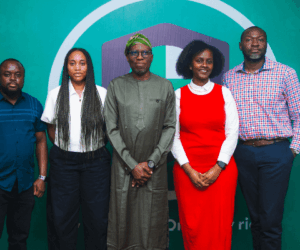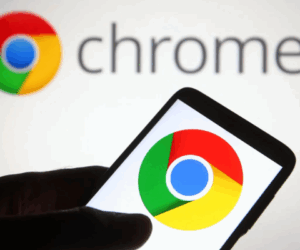
There was a time when the internet felt exciting, when you could stumble upon random blogs, funny memes, and unexpected conversations that made you laugh for hours. You didn’t need to “curate your feed” or “optimise your reach.” You simply logged in, explored, and discovered something new.
However, by 2025, that sense of magic seems to be missing. Every post looks filtered, every video seems optimised for engagement, and every article sounds the same. The question now is simple: has the internet stopped being fun?
From Playgrounds to Platforms
The early internet felt like a playground. People posted whatever came to mind, not what an algorithm dictated. From 2go chats and Nairaland threads to MySpace pages and Tumblr reblogs, online spaces were once chaotic, unpredictable, and human.
Now, everything lives under the shadow of big platforms like Meta, TikTok, and YouTube. As Coda Magazine points out, the open, experimental energy that once defined the internet has been replaced by polished, corporate systems that reward conformity. The same platforms that helped us connect now quietly decide what we see and how we interact.
The Rise of AI and Algorithmic Feeds
Artificial intelligence is now the invisible hand shaping our online experience. Algorithms determine what trends, what sells, and what fades. On platforms like Instagram and TikTok, AI prioritises engagement, which often means showing users the same kinds of videos or posts repeatedly.
According to The New Yorker, this algorithmic loop has made the internet “less serendipitous.” The magazine argues that the internet’s creative randomness has been replaced by predictable trends and recycled formats designed purely for attention.
This algorithmic repetition is not limited to social media. Search engines, music apps, and streaming platforms also use AI to curate what we see, listen to, and even think about next. That means discovery, which used to be the most exciting part of being online, has been replaced by suggestion.
SEO Culture and the Death of Surprise
Search Engine Optimisation (SEO) was once a useful tool for visibility. Now, it often feels like the reason every headline sounds identical. Online publications and creators constantly fight for ranking, stuffing their content with trending keywords just to stay relevant.
Cosmopolitan describes this shift perfectly: the internet has become “a place for performance rather than play.” In the race to please algorithms, content has grown safer, flatter, and formulaic.
Even in Nigeria, the impact is clear. Once-vibrant blog communities, like the old Linda Ikeji Blog days, have evolved into SEO-driven platforms. Many local creators now plan content around Google Analytics instead of genuine curiosity or humour. It’s efficient, but it’s also exhausting.
When Everything Becomes Commerce
At its core, the internet was designed to be a platform for connection. But as social media evolved, connection gradually gave way to conversion. Every scroll is now an opportunity to buy, promote, or sell. Influencer culture and brand partnerships have blurred the line between authenticity and advertising.
What started as a creative outlet for Nigerians, from TikTok skits to YouTube commentary, has turned into a digital economy where creators must constantly perform for visibility. Sponsored content dominates timelines, and personal stories are now neatly packaged as “brand collaborations.”
Social media platforms are increasingly prioritising in-app purchases and targeted ads, turning digital creativity into commercial content. For users, this shift has made online spaces feel more like digital shopping malls than communities.
AI’s Creative Boom and the Uniform Web
Artificial intelligence has undoubtedly revolutionised content creation. Tools like ChatGPT, Canva’s Magic Studio, and Midjourney make it easier than ever to produce articles, videos, and digital art. But this convenience comes with a cost: uniformity.
A study titled The Dead Internet Theory explores how AI-generated and algorithmically amplified content may now dominate much of the web, crowding out human voices. The study suggests that a growing portion of online activity is machine-produced, creating an internet that feels efficient, yet hollow.
Every post seems polished, every idea recycled. Even creativity is beginning to look automated. For younger Nigerians exploring photography, fashion, or visual art, AI can be a double-edged sword; it opens access, but also makes originality harder to spot.
The Decline of Human Connection
Remember when social media felt personal? When people shared random thoughts, blurry photos, and moments that weren’t curated for engagement? Those days seem gone.
For Nigerians who grew up in the era of BBM statuses and Facebook notes, this change is easy to feel. Many now describe social media as exhausting rather than exciting, a constant effort to keep up rather than connect.
The Nigerian Internet: From Blog Wars to TikTok Trends
Nigeria’s online culture mirrors this global shift. The 2010s were full of discovery, gossip blogs, music leaks, and spontaneous Twitter threads that went viral for days. People logged on for fun, not for profit.








